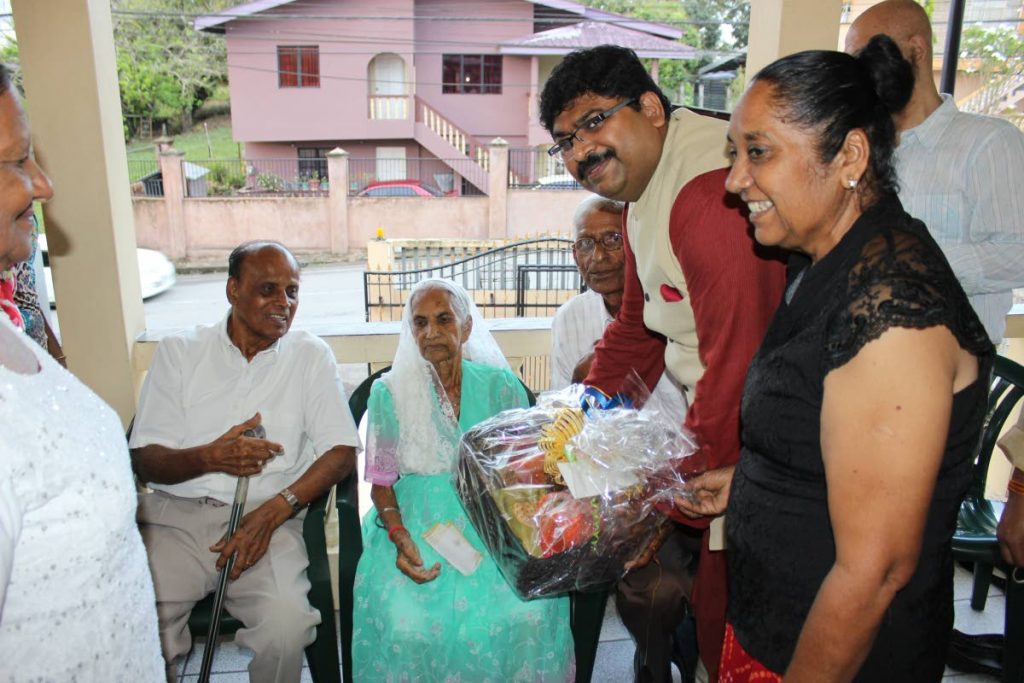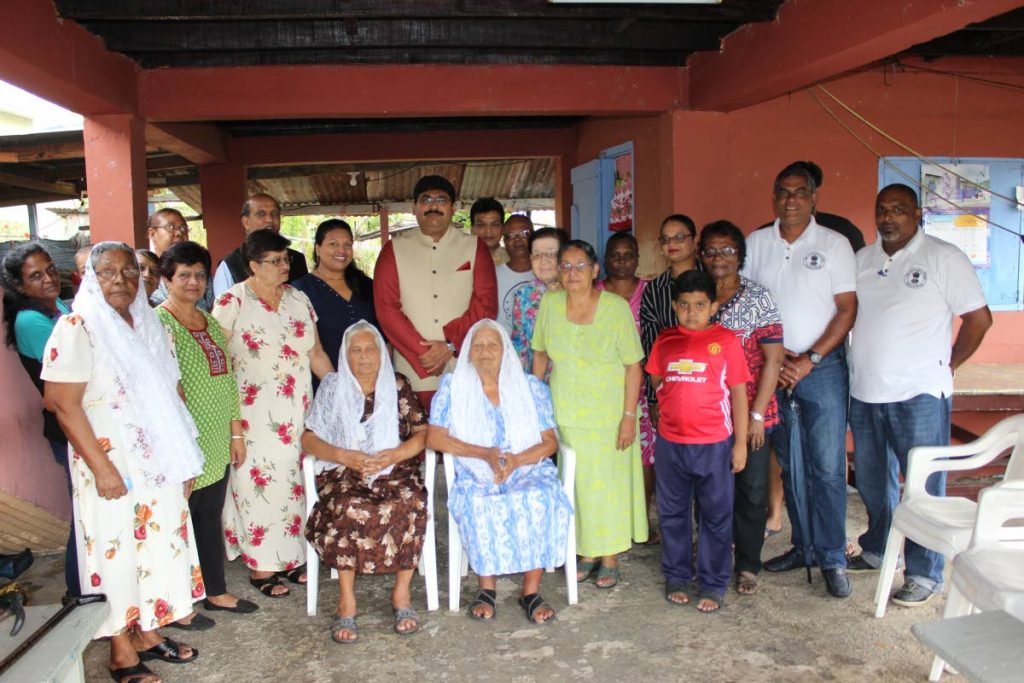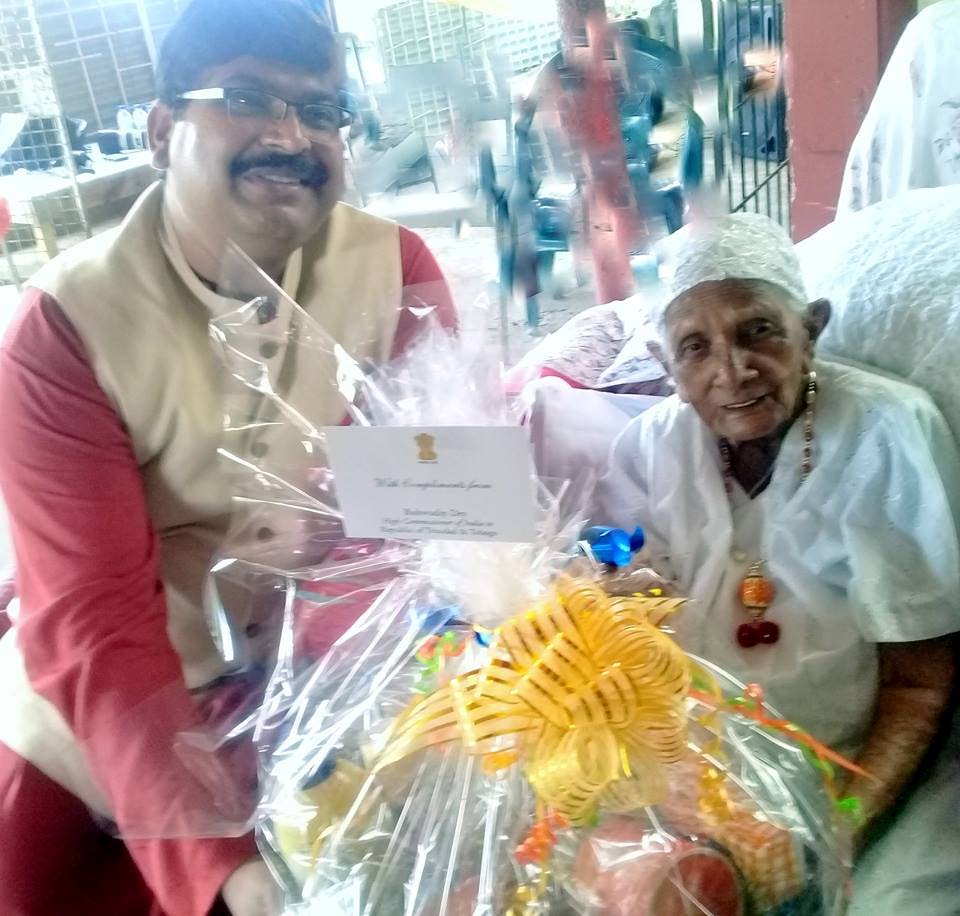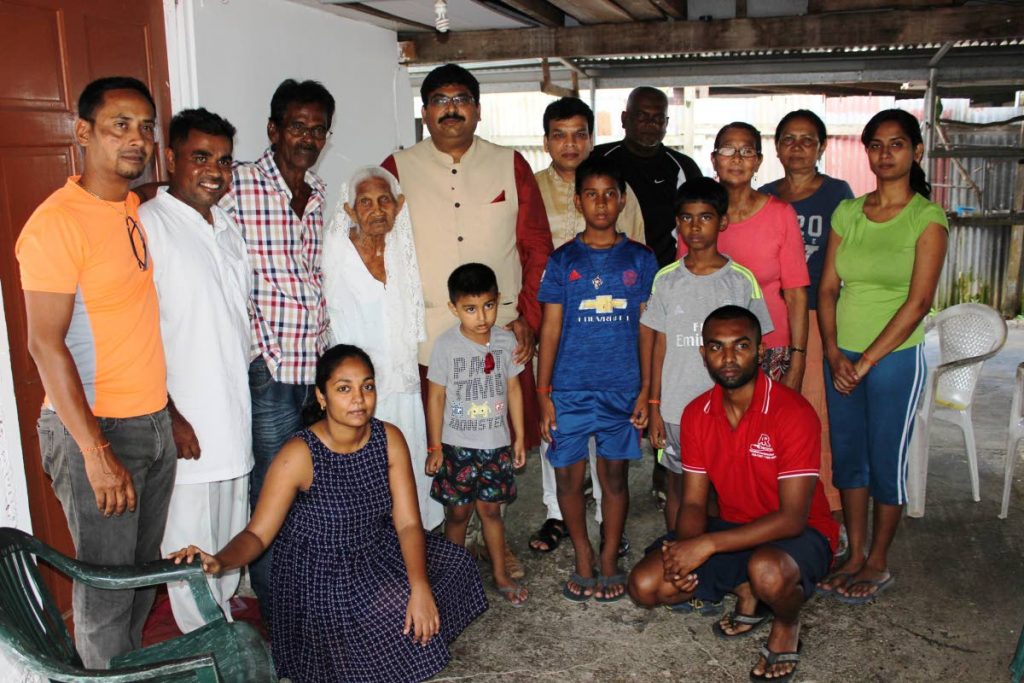Indian envoy honours centenarians

SEETA PERSAD
INDIAN High Commissioner Biswadip Dey began visiting the homes of centenarians in April and will continue this month in the lead up to Indian Arrival Day on May 30.
Last month he visited the homes of centenarians Phool Jankie, 100; Sooknanan Nancoo, 101; Mahadaye Padarat,104; Senkuari Basdeo, 100; Samdaye Dhanasar, 104; and Dharmie Deo, 104. Speaking at Jankie’s home, Dey said he wanted to meet with the centenarians at their home base and spend a little time getting to know them. “The people who made the trip from India to Trinidad and Tobago went through many struggles but they survived and they were able to preserve their culture after 170 years,” Dey said.

He said he wanted to get a first-hand view of the village areas and to meet with the oldest among the villagers. He presented the centenarians with tokens of appreciation for their many achievements. He praised them for their contributions to the development of the social and economic fabric of TT. Dey also visited the Jankijyotir Ashram at 120 Mandingo Road, Princes Town, to meet Jankie and her family. Jankie’s eldest surviving son, Arjune Teeluck, 66, said his mother always cherished her rich Indo-ancestral, religious and cultural heritage. “It is noteworthy to mention that while we have always maintained this sacred loyalty to India, our loyalty to this land of our birth has not in any way been compromised.

Here, we always refer lovingly to Trinidad and Tobago as ‘mother Trinidad and Tobago’ and to India, as ‘grandmother India’,” he said. Teeluck said his parents came from a line of “sadhus” (priests) with Jankie Sadhu, his grandfather from the rural village, Jhanpur in Uttar Pradesh, India.
“My father, sadhu Teeluck Jankie was well-versed in Hindi (Bhojpuri) and had a good understanding of Sanskrit. He would read religiously form the holy Ramayan and the Mahabharata daily. He would lead in regular nightly satsangs both here at home and at the homes of villagers. Ma, on the other hand, had an exemplary grasp of our oral folk traditions. She would tell us stories in her own unique style that were oftentimes filled with humour but which were always as intellectually stimulating as they were soulfully edifying.”

Phool’s youngest son, Setrohan Jankie, related one of the many teachings of his mother that helped to shape his character: “Ma used to say that if the clothing is old, it is nothing as long as it is clean.
She taught me humility, kindness and honesty and I can truly say that in the words of the prayer, ‘Tumhi ho mata, pita tumhi ho. Tumhi ho bandhu, sakha tumhi ho,’ mother and father is everything to a child.
At the home of Nancoo at Nancoo Trace, Woodland, Penal, Dey was welcomed by Nancoo’s daughter, Mala Ramkissoon, and other family members and villagers. Ramkissoon related a story of Nancoo much to Dey’s delight. She said Nancoo was always walking long distances and he would love to eat food that was hot from the pot.
When Dey visited Padarat’s home at Bassie Street, Spring Village, Valsayn, he was welcomed by Padarat’s eldest child, Bailmatee Johnny.
For another visit, Dey journeyed to Basdeo’s home at Teak Village, Siparia, where he met with her daughter Susie Ramsaran-Nandlal and the villagers. Dhanasar of Carat Hill, Barackpore, was overjoyed to see the high commissioner when he stopped by. Her son, Bhola Rampersad, welcomed Dey to his home, saying it was a humble setting for someone as important as Dey.
The final stop was in Digity Trace, Clarke Road, Penal, where Dey met with Deo and her family. Deo who was originally from Moruga, married and moved to her husband’s home in Penal. Her granddaughter, Saira Arjune, greeted Dey. Arjune said Deo’s family traced her lineage to the state of Uttar Pradesh in India. Her parents were from Jhanpur. Deo’s father, Jute, and mother, Kaushila, came to Trinidad and worked on the Hermitage Estate as cane farmers.


Comments
"Indian envoy honours centenarians"